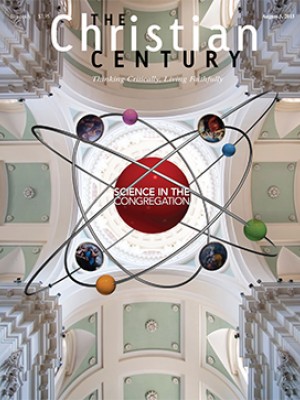August 9, 19th Sunday in Ordinary Time: Ephesians 4:25-5:2
We are to work honestly, work with our hands, and work so that we can share with those in need.
When I was in high school, my physics teacher asked if I would be interested in a part-time, after-school job getting science equipment ready for an evening class. I was excited to tell my parents about what I thought was a great opportunity—a chance to put my classroom learning to good use, get some solid work experience, and earn some money of my own. There seemed to be no downside. How could I turn down such a good offer?
To my surprise, my mom and dad were decidedly not in favor of my taking on a job. In their view, my own schoolwork outranked any part-time job. They reasoned that I’d have plenty of time to work after I graduated. “Besides,” said my dad, “You don’t need to work. You already have all the clothes and everything else you need.” My dad was not much of a consumer. “You should let someone else have that job who might need it more than you do,” he said.
Read our latest issue or browse back issues.
I’m as old now as my physics teacher was then, and I’m still thinking about questions related to work. Why work? Is it mainly about meeting our own financial needs and buying the consumer goods we desire? Is work meant to start after graduation and last only until retirement, when it’s replaced by golf or travel? Should I be looking to let someone else have my job, someone who might need it more than I do?
Ephesians outlines a number of rules for living the new life in Christ: put away falsehood, speak the truth, be kind, forgive one another. Work comes up in 4:28, which, though addressed to former thieves, is relevant to others as well: “Thieves must give up stealing; rather let them labor and work honestly with their own hands, so as to have something to share with the needy.”
So, we are to work honestly. Thieves must give up stealing; likewise, unfair employers must pay their workers fairly, workers who come in late and leave early must instead give an honest day’s work, and politicians who have been padding their expense accounts must stop. The reason for working is at least partly financial: we work so that we don’t need to steal.
We are to work with our hands. In our information age, we might add that we are to work with our minds, our creativity, our skill, our education, our passion. God created us to be creative—to care for the earth like a garden, to name the animals, to create community with one another. Work is meant to engage one’s whole self, and we are meant to engage our work. We work because we are made in the image of God.
We work so that we can share with those in need. The text takes the consumerism of our society and stands it on its head. We don’t work primarily to keep up with our neighbors or to upgrade our house. We don’t work so that we can buy ourselves the latest toys. We work so that we have something to share with other people.
In this text, I find the answer to at least some of my questions. Why work? Not just to meet our own needs and desires but to keep ourselves honest, to exercise our God-given creativity, and to share with others. Is work meant to end at retirement? No—our activities may change once our formal work life is over, but creative, purposeful activity continues as long as our health allows it. As Dorothy Sayers puts it:
Work is not, primarily, a thing one does to live, but the thing one lives to do. It is, or it should be, the full expression of the worker’s faculties, the thing in which he finds spiritual, mental and bodily satisfaction, and the medium in which he offers himself to God.
The Ephesians text also raises additional work-related questions. When I purchase the cheapest product available, am I in fact stealing from workers who are paid unfairly for their labor? How will I limit my consumption and share more with people in need? After working at the same church for more than 20 years, how can I continue to engage the work of ministry creatively and not simply go through the motions?
I can’t answer these questions with any finality. They are ongoing questions to ponder and wrestle with, questions to answer in living and working day by day. So I continue to live into my work and into my questions, with partial answers for today and hope for tomorrow.
As for that after-school job years ago? My parents’ arguments proved persuasive, and I told my teacher I wouldn’t be taking the job after all. Sometimes I wonder what would have happened if I had made the opposite decision. Perhaps I would have gone on to study science instead of the humanities. Perhaps I would be a physicist today instead of a pastor and writer. In any case, my parents were right. I didn’t need that job, and within a few weeks I had forgotten all about it. That summer I started working for my dad—I guess he decided that my having a job while I was still in high school could be a good thing after all.






